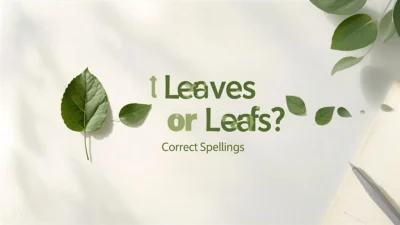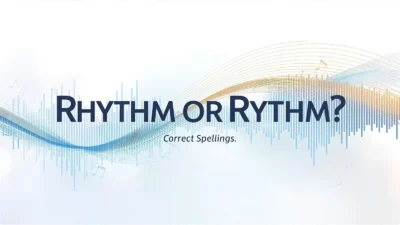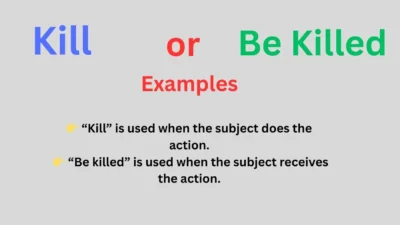If you’ve ever paused mid-sentence wondering, “Is it where or were?” — trust me, you’re not alone.
Even fluent speakers mix them up because “where” and “were” look so similar yet mean completely different things.
I’ve helped many students fix this exact confusion, and now I’ll help you too.
In this quick guide, I’ll explain both clearly, with examples and easy tips you’ll remember forever.
By the end, you’ll know exactly when to use where and when to use were! 🌟
Where or Were – Quick Answer 🚀
“Where” means in or to what place.
Example: Where are you going? or Where did you find that book?
“Were” is the past tense of “are”, used when talking about the past.
Example: They were happy yesterday. or You were late to school.
A simple trick to remember:
👉 If it’s about location, use where.
👉 If it’s about time or action in the past, use were.
Fast Test:
- “___ are you?” → Where are you? ✅
- “You ___ smiling yesterday.” → You were smiling yesterday. ✅
The Origin of Where and Were 📜
Both words look similar because they share ancient English roots.
The word “where” comes from Old English “hwǣr”, meaning “at what place.” It’s always been linked to location or direction.
On the other hand, “were” comes from Old English “wǣron”, which was the plural past form of “be.”
So “were” has always been a verb, while “where” has always been an adverb.
Their spelling similarity is pure coincidence — their meanings developed separately over centuries.
Still, because English evolved from multiple languages (like Germanic, Latin, and Norse), many words ended up looking alike even when they meant totally different things.
That’s exactly why pairs like where/were, there/their, your/you’re continue to confuse learners.
British English vs American English Spelling 🇬🇧🇺🇸
Here’s the good news — there’s no difference in spelling between British and American English for “where” or “were.”
They are written exactly the same way on both sides of the Atlantic.
However, pronunciation can slightly differ. Americans often pronounce “were” shorter (like wur), while British speakers stretch it a bit (weh-uh).
Let’s see how both are used in examples:
| Word | Meaning | Example (US English) | Example (UK English) |
|---|---|---|---|
| Where | Refers to a place or direction | Where are my keys? | Where did you put the car? |
| Were | Past of “are” | They were excited. | You were late again. |
In both countries, grammar rules stay identical. Only pronunciation changes a little.
So if you’re writing essays, blogs, or business emails — don’t worry about spelling differences. You’re already correct! 😄
Which Spelling Should You Use? 🌍
The great thing about these two words is — you never have to choose between spellings.
Unlike “color/colour” or “center/centre,” both “where” and “were” are universal.
Still, you must use them in the right context.
If you’re writing for a global audience, follow this rule:
- Use where for places, positions, and directions.
- Use were for past actions or states.
If you’re writing for an American, British, Canadian, or Australian audience, it’s the same rule.
Example:
- 🌎 Where is your office located? (Global)
- 🇺🇸 They were working late yesterday. (US English)
In short — grammar is what matters here, not geography!
Common Mistakes with Where or Were ⚠️
Even advanced learners make these small but common mistakes.
Here are the most frequent ones — with corrections you can memorize easily:
| ❌ Incorrect Sentence | ✅ Correct Sentence |
|---|---|
| I don’t know were he went. | I don’t know where he went. |
| Where you at the party? | Were you at the party? |
| They where so kind. | They were so kind. |
| I wonder were she is now. | I wonder where she is now. |
| We where tired after the trip. | We were tired after the trip. |
Quick Tip:
👉 If it’s asking a question or showing direction → “where.”
👉 If it’s describing what happened → “were.”
Once you practice these, you’ll spot errors instantly.
Where or Were in Everyday Examples ✍️
You’ll find both words everywhere — in emails, news, texts, and captions.
Here’s how they naturally appear in daily English:
In Emails:
- Where should I send the report?
- We were discussing the client’s feedback yesterday.
In News Headlines:
- Where the wildfire hit hardest.
- They were rescued after six hours of searching.
In Social Media Posts:
- Where my heart truly belongs ❤️
- We were unstoppable that night!
In Formal Writing:
- Please clarify where the meeting will take place.
- Employees were notified of the schedule change.
No matter the format, the meaning stays consistent — “where” = location and “were” = past action.
Where or Were – Google Trends & Usage Data 📊
Data shows that “where or were” is one of the most searched grammar pairs in English.
According to Google Trends, searches spike during school exam months and academic writing seasons.
The top countries searching for this term are:
🇺🇸 United States
🇮🇳 India
🇬🇧 United Kingdom
🇨🇦 Canada
Let’s break it down:
| Country | Most Searched Term | Common Use |
|---|---|---|
| USA | were | Grammar corrections |
| UK | where | Sentence meaning |
| India | where or were | English learning |
| Canada | were | Writing and education |
This shows how universal the confusion is — especially among non-native English learners and students preparing for exams.
Interestingly, data also reveals that “where” is used 5× more often in everyday text than “were”, because we ask questions and describe places more frequently.
However, “were” dominates in storytelling, reports, and historical writing.
So both words are equally important — they just appear in different contexts.
Mini Comparison Table – Where vs Were 📋
| Feature | Where | Were |
|---|---|---|
| Type | Adverb | Verb (past of “are”) |
| Meaning | Refers to place or position | Refers to past state or action |
| Example | Where is she going? | They were happy. |
| Use in Questions | Yes | Yes |
| Tense | Present | Past |
| Common Confusion | Mixed with “were” | Mixed with “where” |
| Trick to Remember | If it’s about place → use where | If it’s about past → use were |
Extra Usage Tips for Learners 💡
Use “where” when asking or pointing out a location:
➡️ Where are you sitting?
➡️ Do you know where she parked?
Use “were” when talking about something that happened before:
➡️ You were my best friend in school.
➡️ They were excited about the event.
You can even spot them in combination:
➡️ Where were you last night?
Here, both appear in one sentence — “where” asks about place, and “were” is the past tense verb.
Practice Sentences – Try It Yourself! ✏️
Fill in the blanks to test yourself:
- _______ are my glasses?
- We _______ at the park yesterday.
- Do you know _______ he lives?
- You _______ supposed to call me.
- Tell me _______ to meet you.
Answers:
- Where
- Were
- Where
- Were
- Where
How many did you get right? If all five — you’ve mastered it! 🎉
FAQs – Where or Were 💬
1. What is the main difference between “where” and “were”?
“Where” refers to a place or position. “Were” is the past form of “are.”
2. Can “were” be used in questions?
Yes! Example: Were you there?
3. Is “where” a verb or adverb?
It’s an adverb — it describes a place or direction.
4. Can I use “where” in formal writing?
Absolutely. Example: Please specify where the data was collected.
5. How do I pronounce “were”?
It’s pronounced as “wur” — rhymes with “her.”
6. Can “where” and “were” appear in the same sentence?
Yes. Example: Where were you when it happened?
7. Why do people confuse them?
Because they look similar and are often used close together in sentences.
Conclusion 🌈
So now you know — “where” and “were” may look similar, but their jobs are completely different.
“Where” deals with places, directions, and questions. “Were” deals with past actions and states.
When you understand their roles, you’ll never hesitate again.
Remember:
👉 Where = location
👉 Were = past of are
Use this simple trick whenever you write or speak, and your grammar will sound natural and confident.
So next time someone asks, “Where were you?” — you’ll know exactly why both words are perfect in that sentence. 😉
Keep practicing, keep learning, and soon English will feel effortless! 🌟



